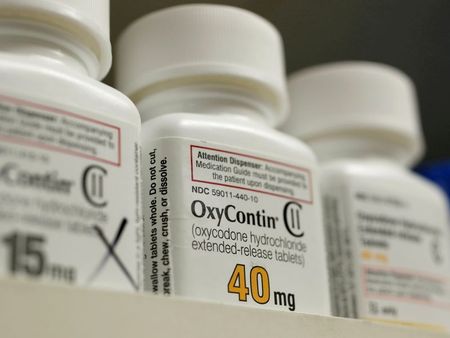By Maria Chutchian
(Reuters) – Former Purdue Pharma President Richard Sackler said on Wednesday that his family’s reign over the OxyContin maker did not contribute to the national opioid epidemic and downplayed his role in a marketing strategy that prosecutors said led to some unsafe opioid prescriptions.
Sackler was the second member of the family to testify over a bankruptcy plan that aims to resolve thousands of claims accusing Purdue of fueling the opioid crisis.
The plan’s underlying settlement includes protections for the Sackler family members that own the company against future opioid-related litigation.
Richard Sackler’s son, David, testified on Tuesday before a New York bankruptcy court that his family has a “moral responsibility” to help curb the opioid epidemic but would walk away from the deal if they do not receive releases shielding them from future opioid-related litigation.
But when Richard Sackler was asked on Wednesday by an attorney for the state of Washington, which opposes the deal, whether the Sackler family or Purdue bears any responsibility for the crisis, he responded with a firm “no.”
David and Richard Sackler were both Purdue board directors.
The Sacklers have long denied wrongdoing in connection with the opioid-related lawsuits that led to the bankruptcy. Purdue has pleaded guilty to fraud and kickback charges.
More than 500,000 Americans have died since 1999 from opioid overdoses, according to the Centers for Disease Control and Prevention.
Richard Sackler was also questioned on Wednesday about the Evolve to Excellence program, which according to federal prosecutors encouraged Purdue sales representatives to increase marketing to “extreme, high-volume prescribers.”
He said that while “elements of” Evolve to Excellence were presented to the Purdue board while he sat on it, he did not recall any vote to implement the strategy.
(Reporting by Maria Chutchian in New York; Editing by Noeleen Walder and Matthew Lewis)





